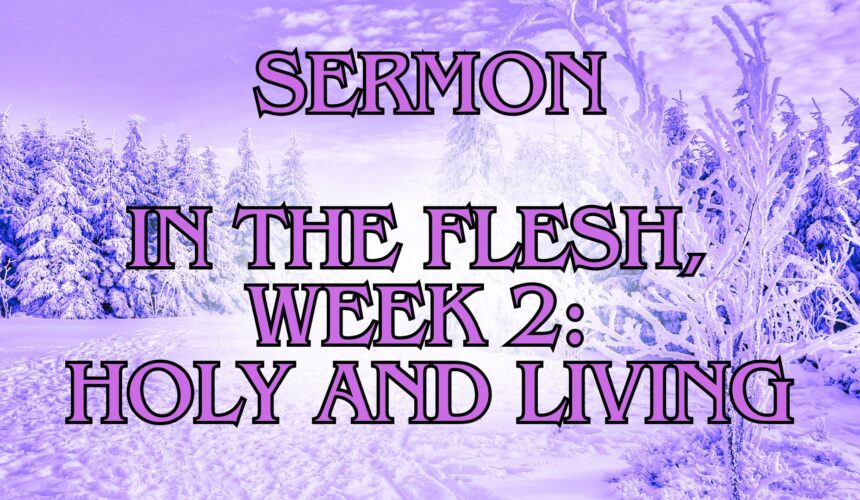Second Sunday in Lent
March 16, 2025
Romans 12:1 – 8
I’ve spent 37 years or so working in churches. And most of that time, I’ve seen God at work in spite of me, not because of me. My main accomplishment in ministry has been to wander randomly into some room, bark my shins on the coffee table and stumble into something that God makes beautiful. My experience in ministry is probably most useful if you’re trying to figure out what not to do.
That said, one of the greatest gifts I’ve been given – and I’ve been given a lot of them – was my time working at Denver Urban Ministries. Our former Pastor Paul Kottke was the founding director of DenUM, and its original purpose was to combine and coordinate the anti-poverty work done by local churches. By the time I came along, the organization had grown and adapted, but our core mission of working to eliminate poverty in the Denver area was unchanged. I loved what we did. I loved getting to know the people we served. And probably most of all I loved the people I worked with. We had this sense that we were doing something really hard, sometimes painful, but always worthwhile.
I remember a moment in one of our staff meetings. From the outside looking in, I’m sure it wouldn’t seem like a big deal. I don’t even recall what we were talking about; I think we were looking at ways to expand our services. One of my coworkers tossed out an idea, and I thought, “I wouldn’t do it like that. But I trust her. If she’s doing it, I know it’s going to work.”
Like I said, that may not sound like a big deal, but for me it was a liberating moment. Instead of worrying about whether something would get done, I could just relax and watch as this beautiful thing took root and blossomed. I didn’t have to stress out about it, because a woman I respected enormously was on the case, and I knew she was going to do the job a lot better than I could. I could just do what I needed to do and know that things would work.
This is the second week in a Lenten sermon series called “in the flesh.” I’m focusing on what it means to follow a God who lives with us, committed to this human life; what it might mean to live our faith here in this physical, material, exasperatingly imperfect and sometimes sad world that stubbornly refuses to conform to our convenience, and that can feel like it’s purpose built to distract us from spiritual life.
Last week, I talked about two ways of dealing with those stubborn distractions, and I think most Christians use both of those ways to at least some degree. One, of course, is to cut distractions from God out of our lives as much as possible. In its most extreme form, you might call this the monastic solution. Devote ourselves to a life of prayer in a community of like-minded individuals. Live as simply as possible. Own as little as possible. Don’t vote or get involved in politics or devote yourself to career advancement or anything else but seeking God as single-mindedly as you can.
I have a deep respect for that way of life. It’s been a life-giving path for many people, whether they’re officially part of a monastic order or they just decide to live simply in intentional Christian community. Christianity has had monks and other people who embrace this simple, dedicated way of life since at least the early fourth century, and probably before that. I fully believe that the prayers of our sisters and brothers in monastic life have helped sustain and strengthen the church for centuries.
But most of us are not called to that life. Most of us are called to life in society, being what Jesus called the leaven in the loaf for the greater world, that little bit of yeast that changes the whole nature of the bread. For us, there’s another path, which is to seek God in the places where Jesus spent his time: in our lives, in the most ordinary surroundings, these places where the weeds grow among the wheat; where we don’t catch the fish we need; where lonely souls are screaming among the graves at the edge of town or maybe in the encampments in the middle of town; where sometimes our little boat feels like it’s sinking in the storm no matter what we do; where we are so often overwhelmed and it’s so easy to feel helpless and harassed, like sheep without a shepherd. The Gospels tell us this is where we find Jesus. This is where we meet the God who fully embraces our humanity: in our incomplete, imperfect, yet somehow beautiful common lives. That’s maybe the second way of dealing with a world that seems to pull us away from spiritual life at every turn. Find the presence of God in the everyday.
This morning we heard a passage from the 12th chapter of the Apostle Paul’s letter to the church in Rome. Scholars agree it was probably written sometime around the year 55, 56; and those would have been hard and painful years for the Christians who lived there. In the year 49, so not long before this letter, the Roman Emperor Claudius banished Jews from the city; just gave an order that all Jews had to pack up and leave. That order split the Christian community – because some Christians in Rome came from Jewish ancestry and some were gentiles.
By the time Paul wrote Romans, Claudius had mysteriously died from poisoning, and the Emperor Nero was in power. (Probably not a coincidence, for those keeping score at home.) But Nero allowed Jews to come back into the city. So now the Christian community in Rome was divided between gentile Christians who had accepted the Jewish exile and stayed in Rome, and Jewish Christians who were pretty angry that their supposed sisters and brothers in Christ had been carrying on life while the Jewish Christians lost everything – their homes, their property, their businesses, everything they had worked so hard to build.
So Paul writes Romans in part to address that conflict. That’s why there’s so much in the letter about the relationship of Jews and Gentiles within Christianity; it’s why he writes those lines in the passage we heard this morning about not thinking more highly of yourself than you ought to think. It’s why he talks about how every Christian is part of one Body in Christ: not some abstraction, some theoretical community, but a living, breathing being that is harmed when divided against itself. The conflict between these two camps is why Paul writes, “do not be conformed to this world:” this place where we are pitted against each other, where our resentments and grievances are tearing us apart to the delight of power-hungry Kings. Instead, he says, be transformed by the renewal of your minds. Understand who you are together.
Describing that way of life, Paul says, present your bodies – not just your belief or your ideas, but your whole and living selves – as what he calls “a holy and living sacrifice:” not martyrs, killed or exiled by a tyrannical government, but rather a people who choose to live in a renewed state of awareness, one not driven by grievance and anger and division. To do that, he says, is worship. To do that is spiritual life.
The community we form in this renewed state is a community of humility, in which none of us think more highly of ourselves than we ought to. It’s a community that recognizes each one of us is part of a greater and living whole, one body, with gifts to offer. We are members, Paul says, of one another. We belong to each other. And together, transformed by the renewing of our minds, we have work to do in a world that believes all this talk of one from many is nothing more than a poetic cliché if it’s even that.
Almost every Thursday afternoon, I lead a Bible study at an assisted living facility in Englewood. Just like we do here in our Friday Bible study, we read and talk about the passage I’ll be preaching on for the coming Sunday. And if you’re thinking that I’m lazy, that I’m just asking people in our Bible studies to write my sermon for me, you’re correct! That’s exactly what I’m doing, and I’m very grateful for the help!
On Thursdays, I read the passgage out loud to our small group, and I ask for people’s thoughts after they hear it. Usually, when I ask what people think, there’s a long pause while people turn it over in their minds. But this past Thursday, one woman spoke up immediately after I read the passage from Romans 12 that we heard this morning.
She said, “This passage takes a load off my mind.” I said, “Why is that?” She answered, “I’m a part of the body. I don’t have to be the whole thing. I don’t have to do everything. I can do what I do. I can trust that other people will do the same, and I can trust that God will use what we offer.” I think she had an experience kind of like I did that day at Denver Urban Ministries. She realized that because we are one Body in Christ, God works through each one of us individually and all of us together. The key is that we show up and use the gifts we have to give life to others and to the community. Paul says that’s part of how we worship God. That’s part of our spiritual life, even in a distracting and distracted world. We’re not responsible for all of the work, but our part is crucial.
Some of you may have heard of a Rabbi named Tarfon, who lived in Israel between the years 70 and 135. Tarfon has a number of sayings preserved in the Talmud, which is a collection of teachings and quotations from ancient Rabbis. One of Tarfon’s most famous sayings comes from a section of the Talmud specifically devoted to ethics, the question of how our faith should lead us to live. Tarfon said, “The day is short. The work is plentiful, and the laborers are often lazy. The reward is great, and the master of the house is insistent on this… It is not your duty to complete the work, but neither are you free to desist from it.”
It is not your duty to complete the work. But neither are you free to desist from it.
Maybe one way we can focus on God even in the distractions and stress of our lives is to see God at work in our lives, in our families, our communities, in the church. We can trust that God is working through this part of the body of Christ. We may be just one small part of a much larger body. But together, we are one. Together, God works through us to bring the world to its full beauty and eventual completion.


